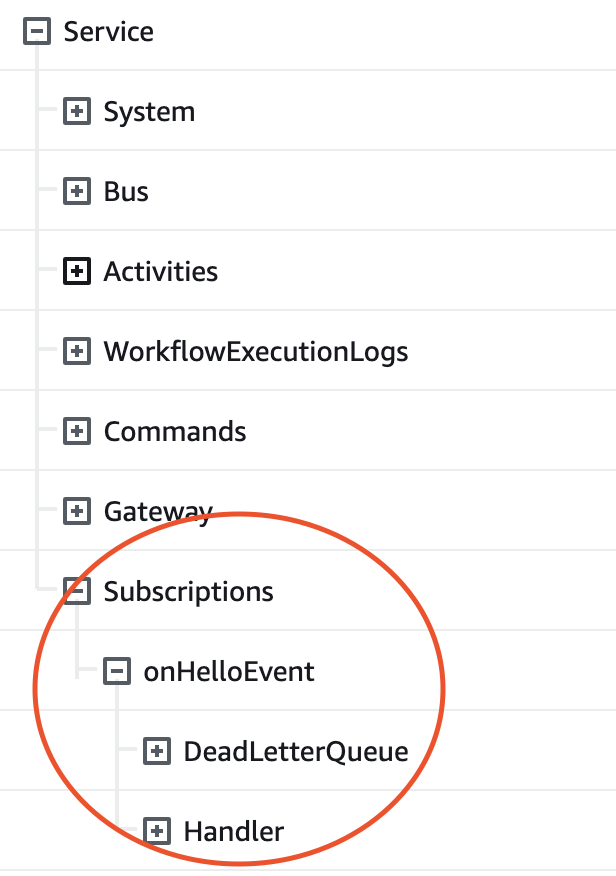Subscription
A Subscription registers a Function to be invoked for every Event flowing through the Service that matches a selection criteria.
Subscribe to an Event
You can subscribe to events by calling the subscription function, passing an array of events to listen for and a callback function for processing events:
import { subscription } from "@eventual/core";
export const onMyEvent = subscription(
"onMyEvent",
{
events: [myEvent, ..],
},
async (event) => {
await processEvent(event);
}
);
Customize Runtime Properties
You can configure memorySize, handlerTimeout and retryAttempts on the subscription directly.
subscription(
"onMyEvent",
{
events: [myEvent, ..],
memorySize: 512,
handlerTimeout: duration(1, "minute"),
retryAttempts: 3
},
async (event) => {
await processEvent(event);
}
);
These values are then the default configuration when deployed. You can further customize these values in your infrastructure code if you desire (e.g for a dev environment):
new Service(this, "Service", {
subscriptions: {
onMyEvent: {
memorySize: 1024,
handlerTimeout: duration(2, "minute"),
retryAttempts: 6,
},
},
});
Dead Letter Queue
Each Subscription gets its own dedicated SQS Dead Letter Queue. You can find this queue in your infrastructure code:
const service = new Service(..);
// a reference to the subscription's dead letter
service.subscriptions.onMyEvent.deadLetterQueue;
You can also substitute your own SQS queue if you prefer:
import { aws_sqs } from "aws-cdk-lib";
const mySubstituteQueue = new aws_sqs.Queue(this, "MyQ");
new Service(this, "Service", {
subscriptions: {
onMyEvent: {
deadLetterQueue: mySubstituteQueue,
},
},
});
If you go to your deployed Stack in CloudFormation, you can see a list of all Subscriptions and their associated Dead Letter Queue and Handler Function.
Expand to see

Runtime Behavior
- un-ordered
- one-at-a-time
- at-least-once .
Un-Ordered
It is not guaranteed that events will be processed in the order they are emitted.
One at a Time
Events are delivered to a subscription one at a time. There is no batching mechanism.
At Least Once Delivery
Events are delivered to the function at least once. Failures are re-driven according to the retry policy.
Your code should be defensively programed against duplicates, however rare.